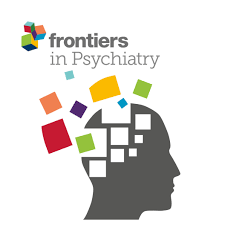Low carbohydrate and psychoeducational programs show promise for the treatment of ultra-processed food addiction: 12-month follow-up
By Jen Unwin, Christine Delon, Heidi Giaever, Clarissa Kennedy, Molly Painschab, Frida Sandin, Charlotte Schön Poulsen, & David A. Wiss

The current data demonstrate the long-term clinical effectiveness of a low carbohydrate “real food” intervention delivered in an online group format with education and social support for individuals with UPFA symptoms. This intervention
demonstrated clinically significant benefits for participants after 12 months. Larger, controlled and randomized intervention studies are needed to continue developing effective treatment protocols for this complex condition. It seems timely to compare an “abstinence-based” treatment approach described herein with the “all foods fit” (moderation) approaches among those with co-occurring UPFA and EDs, particularly binge-type EDs. Integration of UPFA-informed treatment models should be implemented with sensitivity to other models of ED recovery; clinicians and researchers from different schools of thought should join forces to improve patient care rather than oppose one another from deeply established intellectual allegiances.
Subscribe for weekly insights and research exploring the link between nutrition & mental health.
Abstract
The topic of ultra-processed food addiction (UPFA) has been the subject of many peer-reviewed publications. Although on average 14% of adults may meet the criteria for UPFA in prevalence studies, it is not a recognized clinical diagnosis, hence a lack of published evidence-based treatment protocols and outcome data.
In 2022, we reported outcomes pre- and post-intervention from an online, real food-based, low-carbohydrate educational program with psychosocial support related to ultra-processed food addiction recovery. The intervention was delivered across three locations, offering a common approach. The programs comprised weekly online sessions for 10–14 weeks, followed by monthly support groups. The previously published data were outcomes relating to UPFA symptoms measured by the modified Yale Food Addiction Scale 2.0, ICD-10 symptoms of substance use disorder related to food (CRAVED), and mental well-being as measured by the short version of the Warwick Edinburgh Mental Wellbeing Scale, pre- and post-intervention.
The current report focuses on the same cohort’s 6- and 12-month follow-up data. The 12-month follow-up data show significant, sustained improvement in UPFA symptoms and mental well-being. These data are the first long-term follow-up results to be published for a food addiction program. Research is now needed to evaluate and compare other long-term interventions for this impairing and increasingly prevalent biopsychosocial condition.

Citation:
Unwin, J., Delon, C., Giaver H., Kennedy C., Painschab, M, Sandin, F, Poulsen, C. S., & Wiss, D. A. (2022). Low carbohydrate and psychoeducational programs show promise for the treatment of ultra-processed food addiction: 12-month follow-up. Frontiers in Psychiatry. https://doi.org/10.3389/fpsyt.2025.1556988